
This website uses cookies so that we can provide you with the best user experience possible. Cookie information is stored in your browser and performs functions such as recognising you when you return to our website and helping our team to understand which sections of the website you find most interesting and useful.

Identity fraud doesn't just leave visible marks on the financial statement, but it also brings a series of hidden costs that can be equally devastating. These costs range from the time spent resolving the issue to the irreversible damage to a company's reputation.

In an increasingly complex digital environment, human identity verification and cybersecurity are essential to protect users and businesses from emerging threats. Looking towards 2025, technologies such as biometrics, artificial intelligence, and quantum computing will redefine online security.
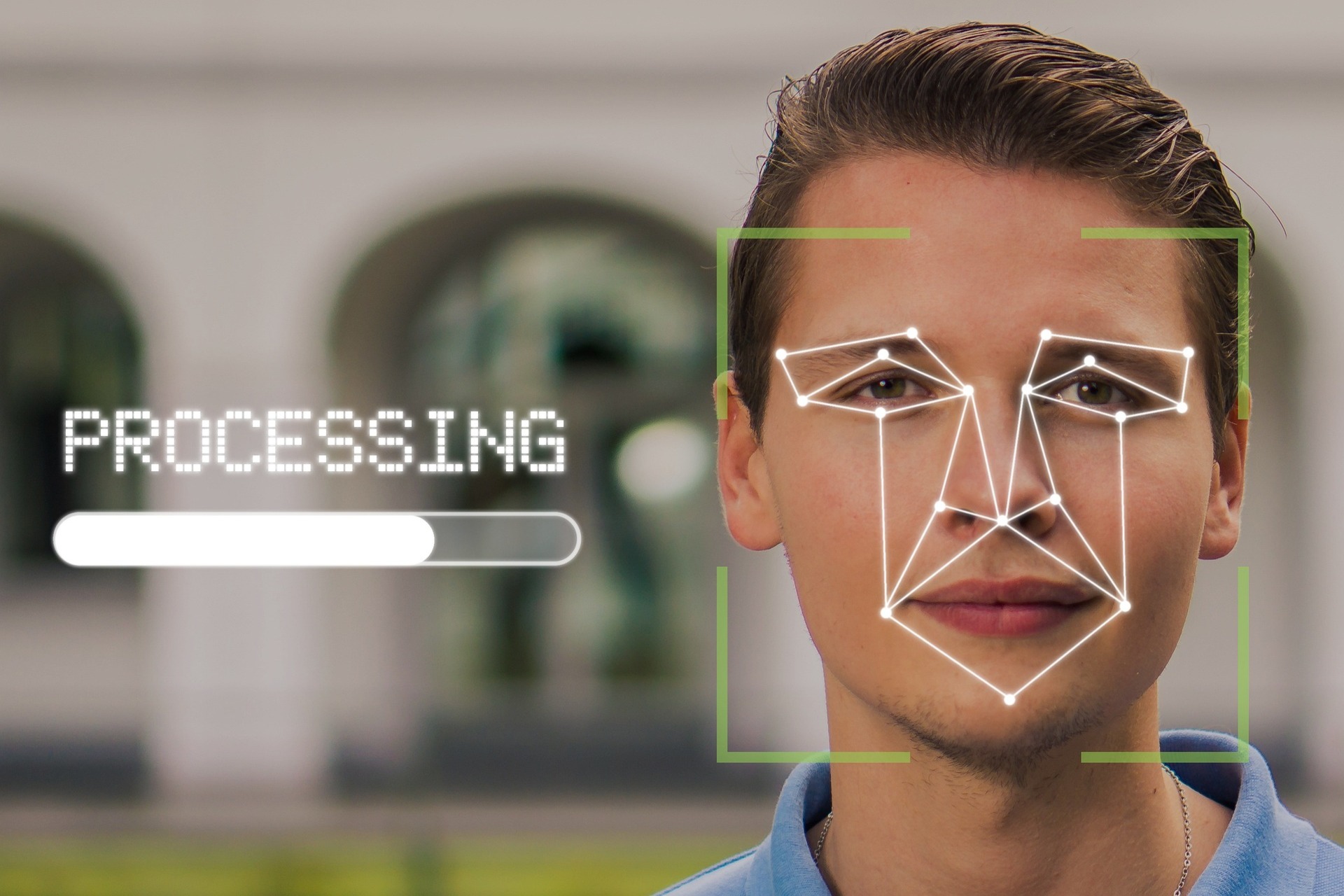
Digital acceleration and the proliferation of cyber threats have redefined business priorities in security. In 2025, cybersecurity is set to become a critical element not only for protecting data but also for ensuring customer trust and operational continuity.

As identity fraud becomes increasingly sophisticated, organizations and individuals must be more vigilant than ever in safeguarding their data. With a rise in AI-driven attacks and deepfakes, financial losses and digital security risks continue to escalate. In this evolving landscape, advanced technologies like B-FY's human identification solution are playing a critical role in ensuring authenticity and preventing fraud.

Human authentication, driven by biometric technologies, is transforming digital security by offering a safer and more efficient solution to the risks posed by traditional passwords. In this context, B-FY stands out as a leader, developing an innovative technology that protects data without compromising user privacy.

The tourism industry is at the forefront of technological innovation, transforming both traveler experiences and resource management. Today, advancements such as artificial intelligence (AI), augmented reality, and biometric human authentication solutions like those offered by B-FY are revolutionizing the interaction between travelers and service providers.
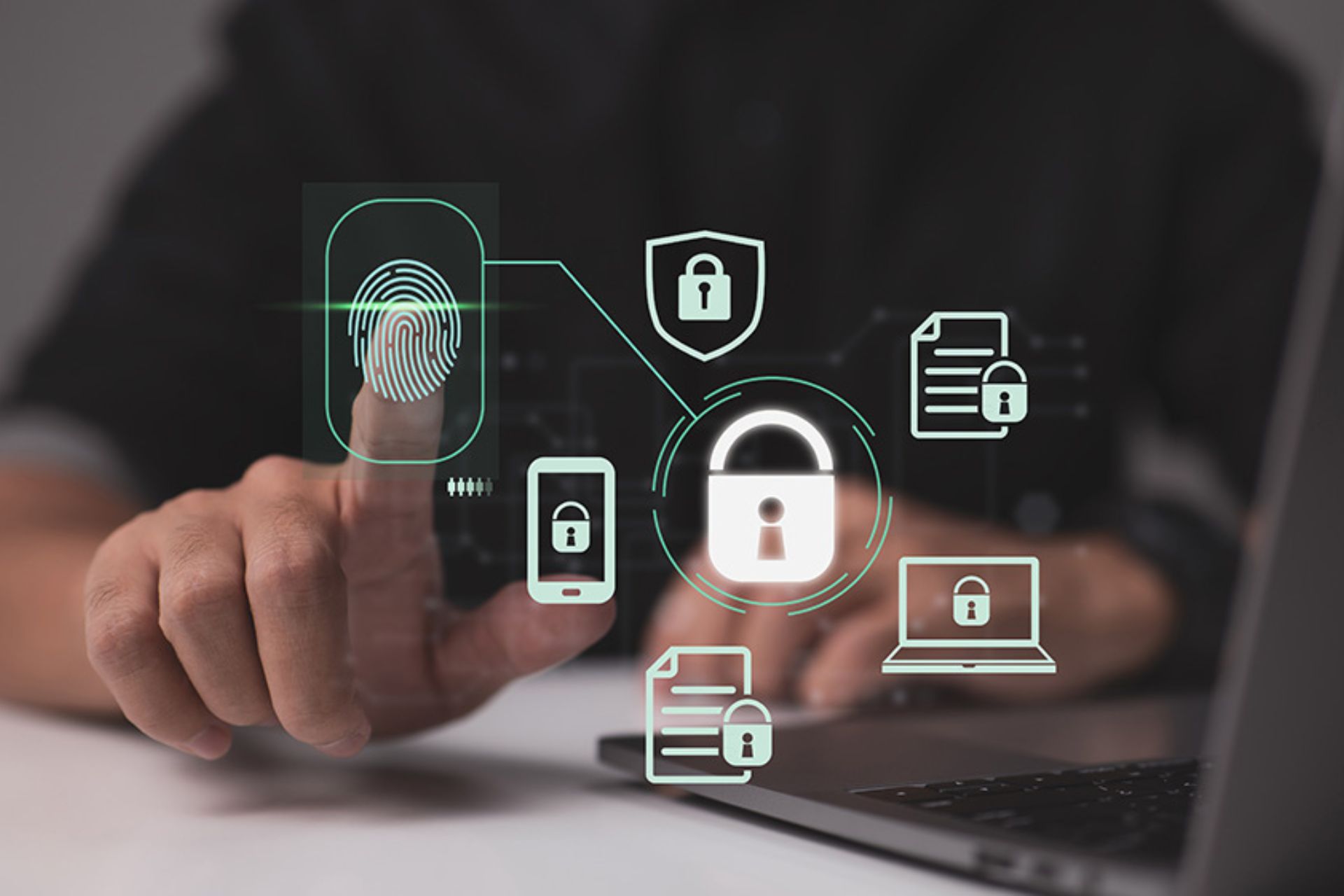
In an increasingly threatened digital world, companies are seeking alternatives to eliminate one of the most vulnerable elements of their systems: passwords. Through a strategy centered on biometric authentication and a passwordless approach, B-FY aims to eliminate risks associated with stolen or compromised credentials.

B-FY's solution has already proven its effectiveness in various sectors, including healthcare, banking logistics, and events, among others, in countries like Spain and Mexico. By launching its solution in the US market, B-FY consolidates its worldwide presence and reinforces its commitment to the battle against cybercrime and identity fraud.

B-FY’s technology provides a foolproof method to identify real operators behind online transactions, ensuring 100% secure interactions. It is a solution designed for easy integration with existing cybersecurity and 2FA systems, offering a potential revenue of $145 billion annually by addressing cybercrime losses.

After its successful global launch in Amsterdam, B-FY will present its innovative Authentication as a Service (AaaS) tool at Identity Week in Washington DC. With this move, B-FY consolidates its international presence and reinforces its commitment to combating cybercrime and identity fraud.

Digital identity theft and security breaches are a constant threat, and passwords remain a critical weak point in cybersecurity. With its focus on passwordless authentication using decentralized biometric data, B-FY redefines security by ensuring that the protection of identity and sensitive data does not depend on vulnerable passwords.
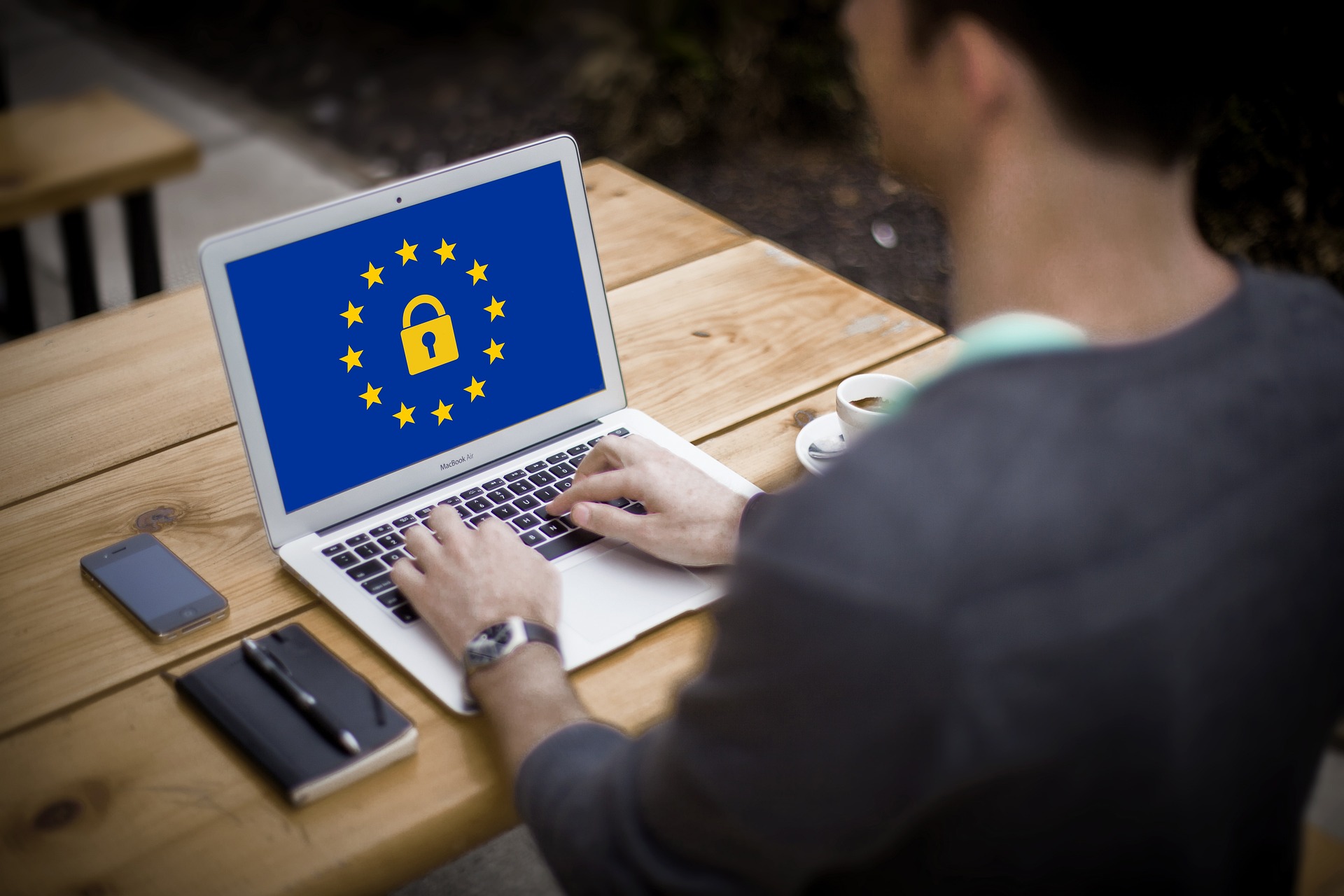
In Europe, the rise of online identity theft has led to the implementation of the European Digital Identity Regulation (EUDI), which aims to offer a secure and reliable solution for managing digital identities. Alongside this, solutions like B-FY are emerging as key tools to prevent identity fraud, using biometric authentication to ensure the protection of personal data.
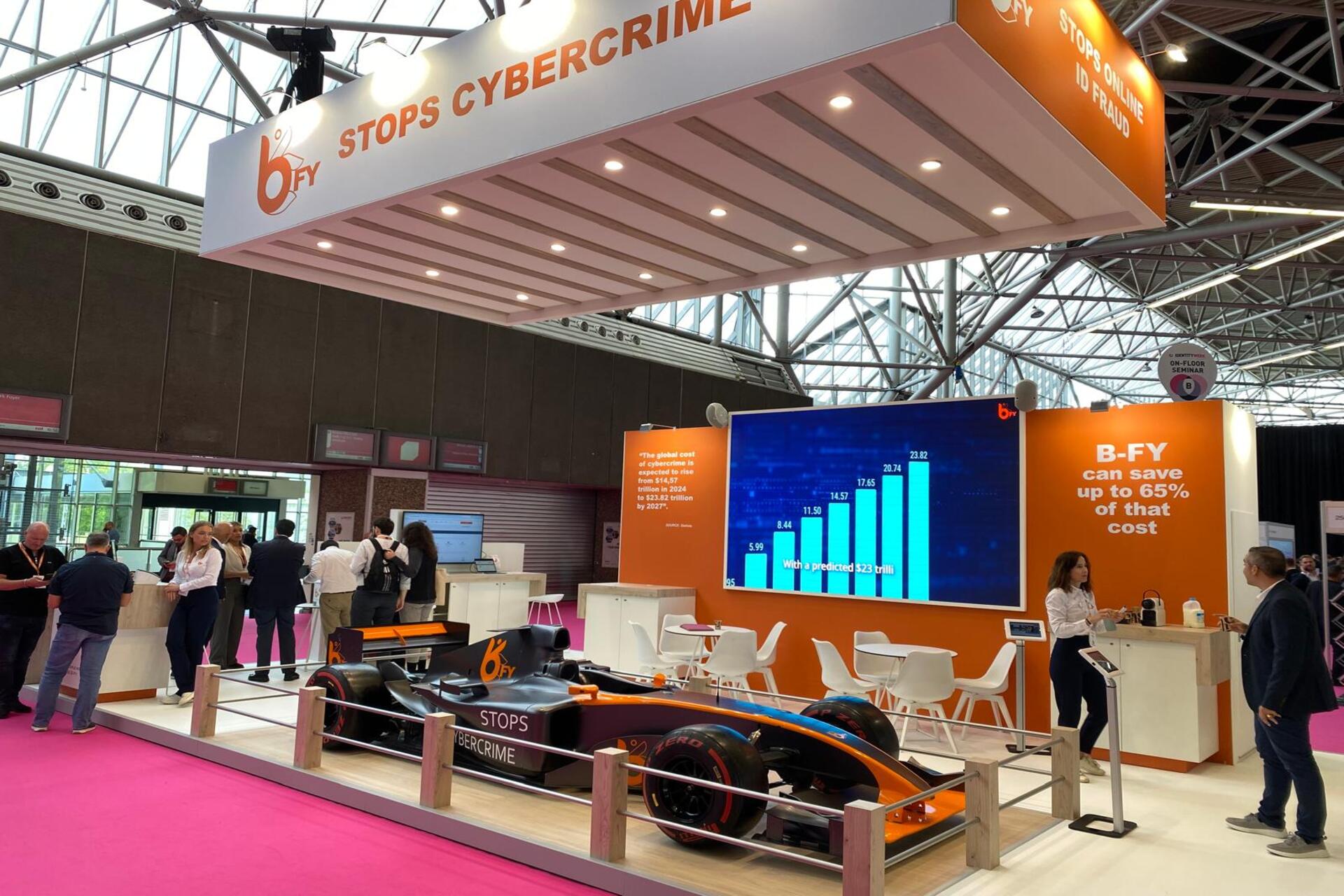
B-FY celebrated the global launch of its innovative decentralized biometric authentication solution at the prominent Identity Week event, held in Amsterdam last June.

We are excited and pleased to announce that B-FY will be part of the IDENTITY WEEK event on June 11-12, 2024, at the RAI Exhibition Centre in Amsterdam. This is the largest and most important identity event in the world, bringing together governments, enterprises, and industry to explore the latest advancements and opportunities in identity and trust.
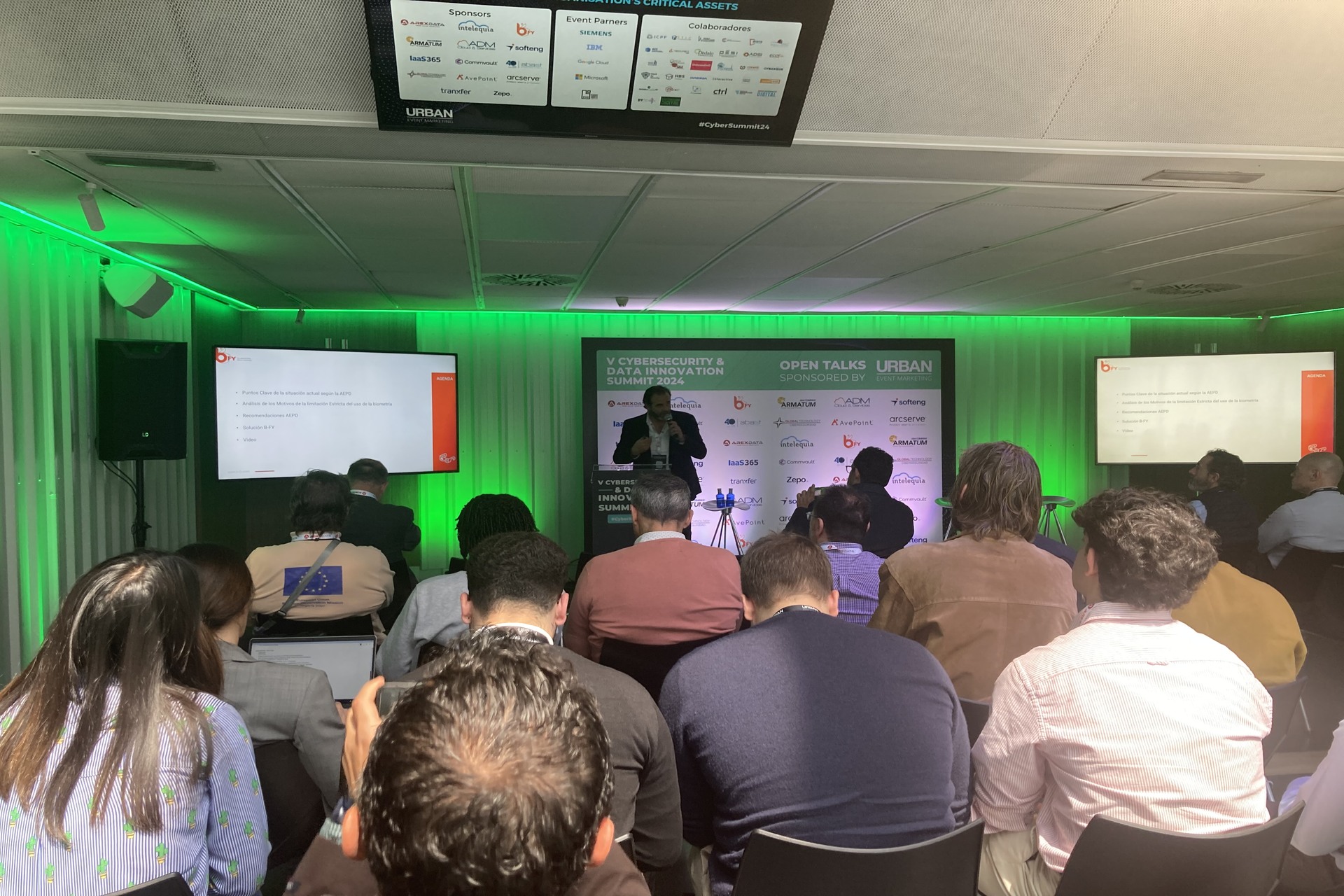
B-FY demonstrated its commitment to innovation and security in biometric identification during the V Cybersecurity & Data Innovation Summit 2024, presenting a solution that complies with AEPD regulations and protects users' privacy in a challenging digital environment.

In a constantly evolving regulatory landscape, biometric technology faces new challenges regarding data privacy and security. In this context, the B-FY solution emerges as a response to the demands of the Spanish Data Protection Agency (AEPD) regarding the treatment of biometric data for employee time tracking, as it not only complies with the new regulations but also provides greater security and privacy for users.
On April 23rd, Madrid will be the epicenter of knowledge exchange on cybersecurity with the 5th edition of the Cybersecurity & Data Innovation Summit 2024. This highly relevant event, which brings together experts and professionals from the sector, will be supported by B-FY as one of its main sponsors.
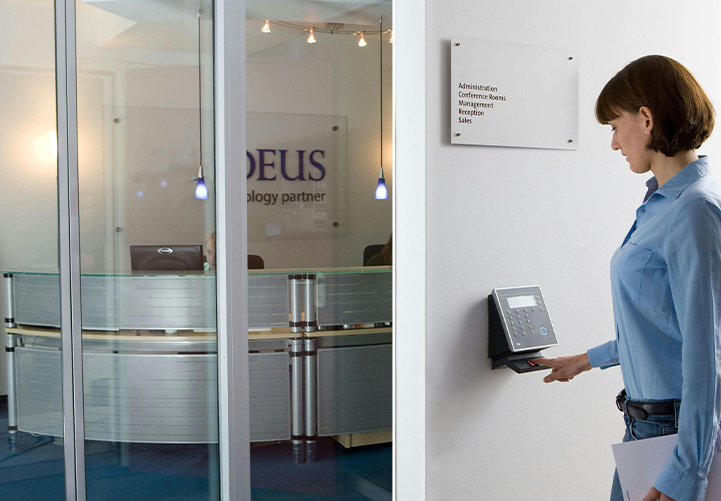
The new provisions of the AEPD, outlined in its Guide on attendance control treatments through biometric systems, restrict and monitor the use of access control systems that collect and store biometric patterns. In this context, B-FY offers a decentralized biometric solution that complies with the AEPD's requirements without the need for an Impact Assessment (EIPD), adhering to the principles of data minimization, proportionality, and suitability in the service it offers.

Traditional methods of identity verification and data management in hospitals often lead to inefficiencies, security concerns, and obstruct the overall patient and staff experience. B-FY's decentralized biometric identity authentication solution emerges as a transformative technology, offering a reliable and efficient way to optimize hospital processes.

In the ever-evolving landscape of healthcare services, the integration of advanced technologies is crucial to ensure efficient, secure, and user-friendly access. B-FY decentralized biometric solution not only enhances security but also facilitates a more fluid and seamless experience for both patients and hospital staff.

In the fast-paced world of finance, where time is of the essence, a seamless user experience is non-negotiable. B-FY's decentralized biometric authentication solution not only strengthens security; it also ensures a more fluid and convenient banking experience for end-users.

Recent studies indicate that a significant percentage of banking customers prioritize a user experience that combines convenience and security. In this regard, B-FY's biometric authentication solution emerges as an effective response, providing an optimal balance between ease of use and protection.

In the current digital era, access to higher education has undergone a radical transformation. However, this shift towards the digital realm has posed a series of challenges in terms of user experience and system security. In this context, B-FY presents itself as an innovative and essential biometric authentication solution for higher education.

The event, organized by B-FY and SOLDIG, allowed attendees the opportunity to learn about an effective and efficient solution to protect their data and digital assets and combat the growing threat of credential theft and identity usurpation.

The collaboration between technology and healthcare is more crucial than ever, and B-FY's biometric authentication is leading the way towards a safer and more efficient healthcare sector.

ATIO Group and B-FY are transforming security in the fuel industry in Mexico. This innovative Identity as a Service (IDaaS) solution utilizes biometric authentication to unequivocally identify drivers, reducing fraud and enhancing security in the fuel loading process.

With the adoption of B-FY's biometric identification solution, the Madrid Golf Federation (FGM) has demonstrated that innovation and security can go hand in hand to create a more reliable and exciting golf experience for all players and fans.

Juan Pablo Yagüe, Global Head of Strategic Partnerships at Serban Group, highlights the advantages of biometrics and B-FY's solution in authenticating digital identities.

Identity Access Management (IAM) is a critical aspect of modern-day business operations. Traditional methods of identity and access management, such as passwords and usernames, are no longer enough to protect critical information from hackers. This is where biometric technology comes into play.

The healthcare industry is a critical sector that requires stringent security measures to safeguard sensitive patient information. Biometric authentication offers a secure and convenient way to ensure that only authorized individuals can access patient data. B-FY’s solution guarantees that user’s data is always under their control. Nobody else’s.
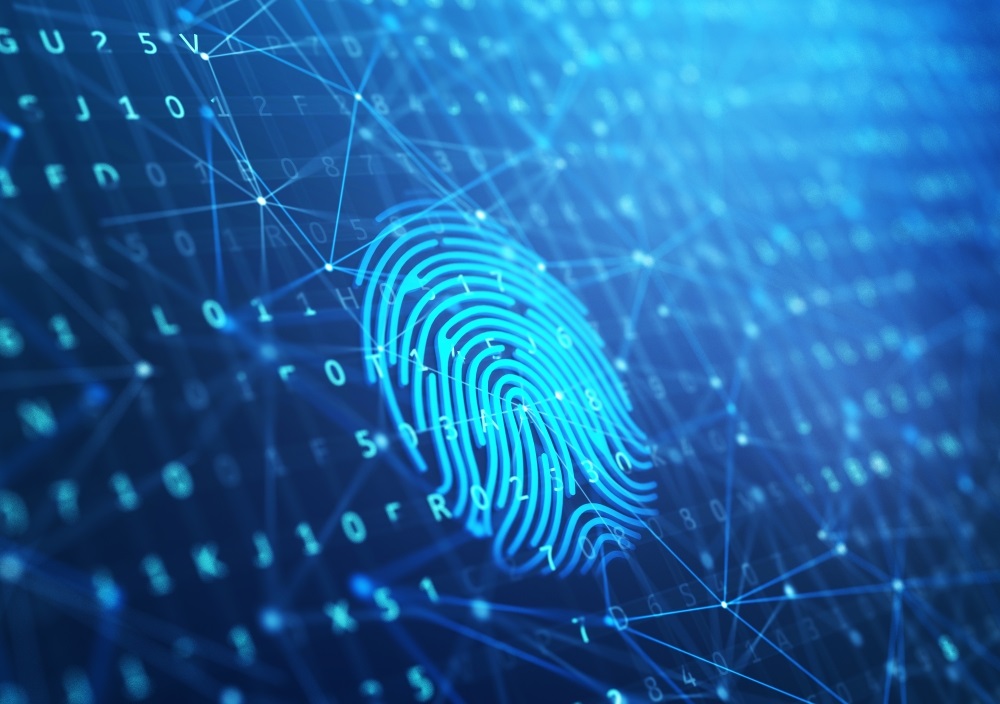
Biometric identity authentication technologies are on the rise. Users prefer these friendlier and more secure processes to secure their data and, surveys reveal, they are ready to forget all about passwords.
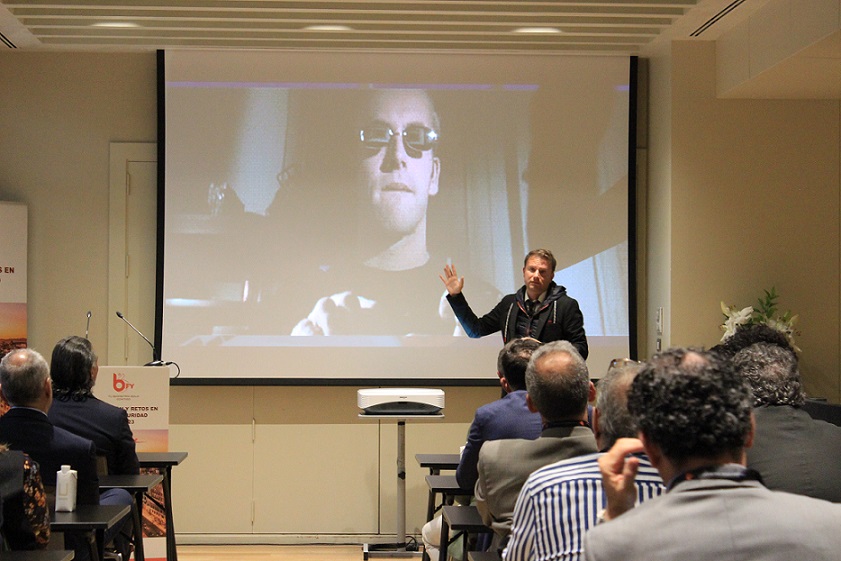
Igor Lukic, founder of Hackron and cybersecurity expert, reveals the modus operandi of cybercriminals and exposes why the user and password-based identity authentication method is the weakest link in the entire cybersecurity framework.
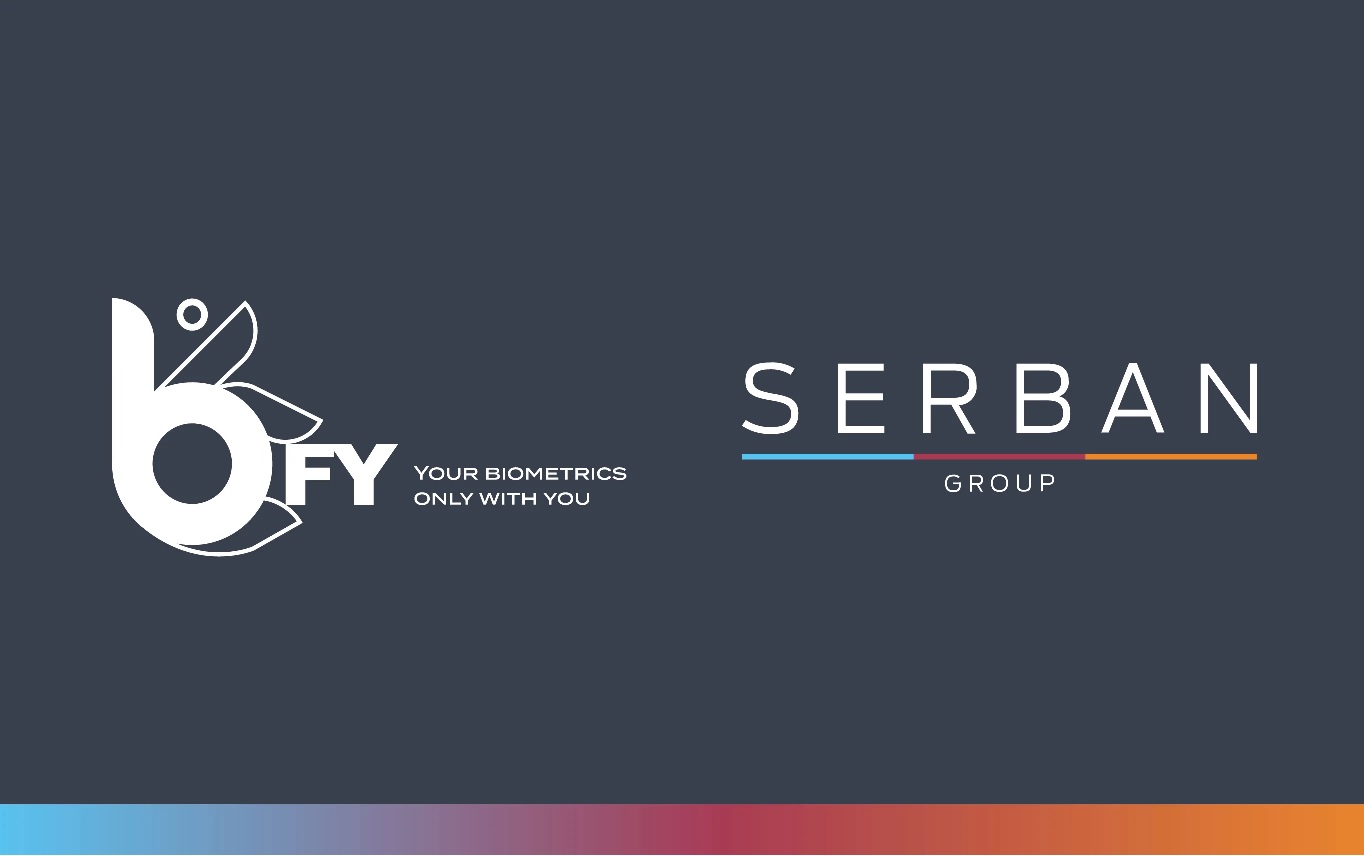
Serban Group, with two decades of experience in IT architecture, biometrics, and digital identity, will implement B-FY's biometric identification solutions through a recently signed agreement between both companies.

B-FY Pulse is a great opportunity to gain insights into the latest cybersecurity trends and regulations, network with industry peers and meet some of the most renowned experts on biometrics and cybersecurity. On Thursday, May 25th at the URSO Hotel & Spa in Madrid. Save the date!

As life becomes digital, guaranteeing data privacy is a growing concern both to users and companies. Almost every country has enacted regulation to protect the personal data shared by users with their service providers. With B-FY’s biometric authentication solution all data remains always under the user’s control, thus preventing risks of data breaches.
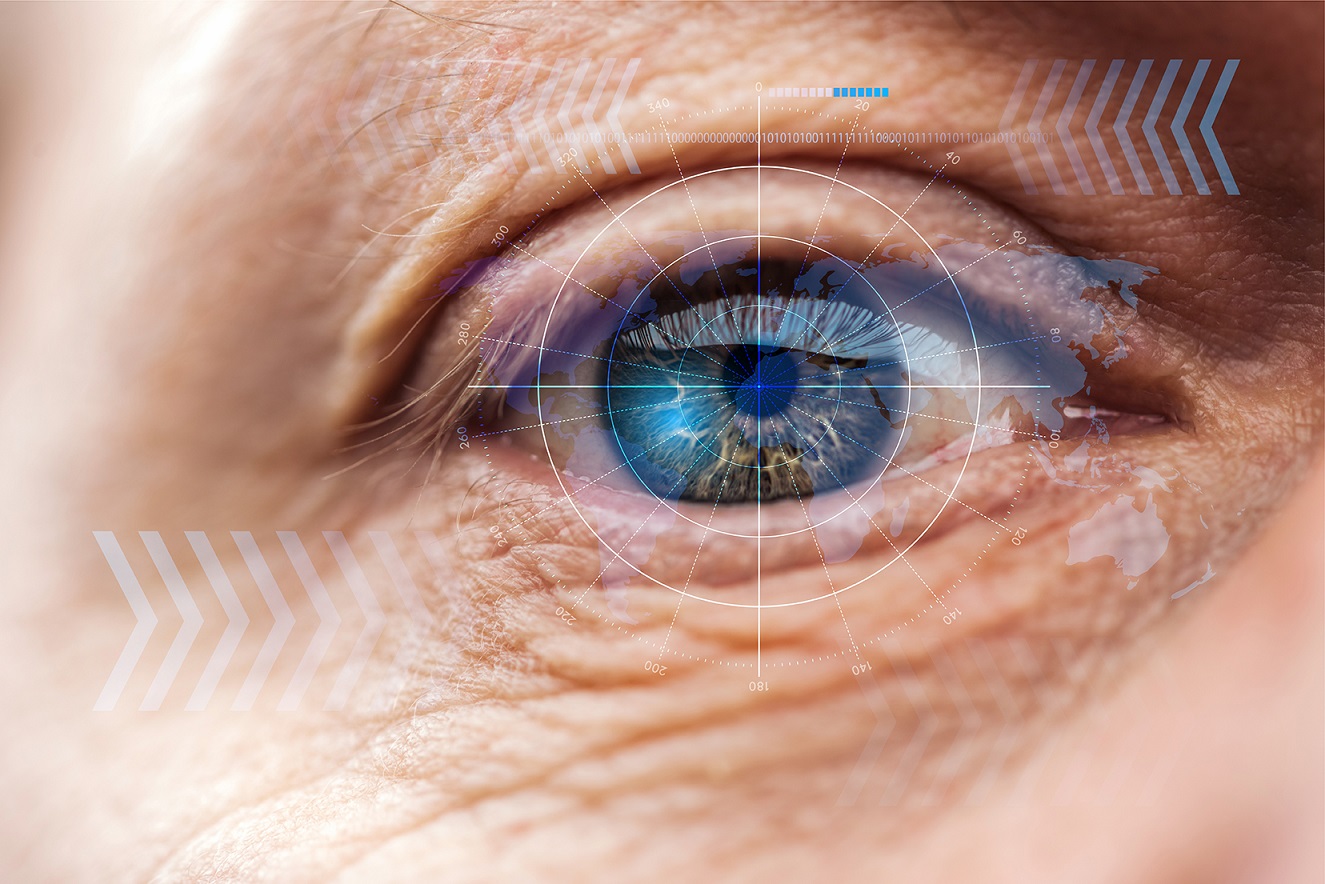
We have been hearing about biometrics for quite some time, but as cybercrime figures soar, it seems biometrics’ time to become the best solution to fight cyber-fraud has finally come.

Traditional security systems based in knowledge authentication are proving to be inefficient against cybercrime, thus, many enterprises are turning to biometric verification. Here are ten reasons why.

Breaches or delays in patient authentication can be fatal in the healthcare industry, one of the most attacked by cybercriminals in the last three years according to various reports.

The global healthcare biometrics market is expected to reach the value of 74.08 billion U.S. dollars (68.6 billion euros) by the end of 2028. Why? As the industry shifts from paper to electronic records, it needs more secure and reliable form of authentication: biometric ID.

Following the outbreak of COVID-19, the educational sector has seen drastic changes. Online learning took a leap and learning in a physical classroom disappeared across the world. As students get accustomed to this “new normal”, a hybrid learning approach is expected to remain. Biometric technology could help the education sector in meeting the increasingly complex security needs that have arisen from this ongoing transformation.

As the higher education industry is undergoing a major transformation to meet the demands of the new generations of students born in a technological environment, cyber attackers have found a new target. Meanwhile, biometric technology is proving to be a valuable solution to secure students’ data and improve the user’s experience both in virtual and physical campuses.

From 2020 to now, digital onboarding has become more frequent for both online and offline banking. Still, implementation, cost, UX and privacy real or imaginary challenges are holding back a wider implementation. B-FY's solution successfully addresses these challenges.
With the steady rise of biometrics our bodies are becoming the future of payment security. Nowadays it is enough with just a quick smile or a wave of the hand, as set in the recently launched Biometric Checkout Program by Mastercard.

By adopting biometric identification systems, subscription model businesses such as content platforms like Netflix, or intermediation platforms like Airbnb, can truly ensure users are who they say they are avoiding identity fraud or password sharing.

Biometrics can help event organizers in many ways, from reducing queuing time to increasing security, preventing fraud, helping the environment, or improving the attendees’ overall experience.

Is the company able to comply with the legal requirements linked to the use of biometrics? As the implementation of biometrics gains speed, regulation on data protection worldwide is following suit. Companies and institutions adopting biometrics must be very careful to avoid lawsuits.
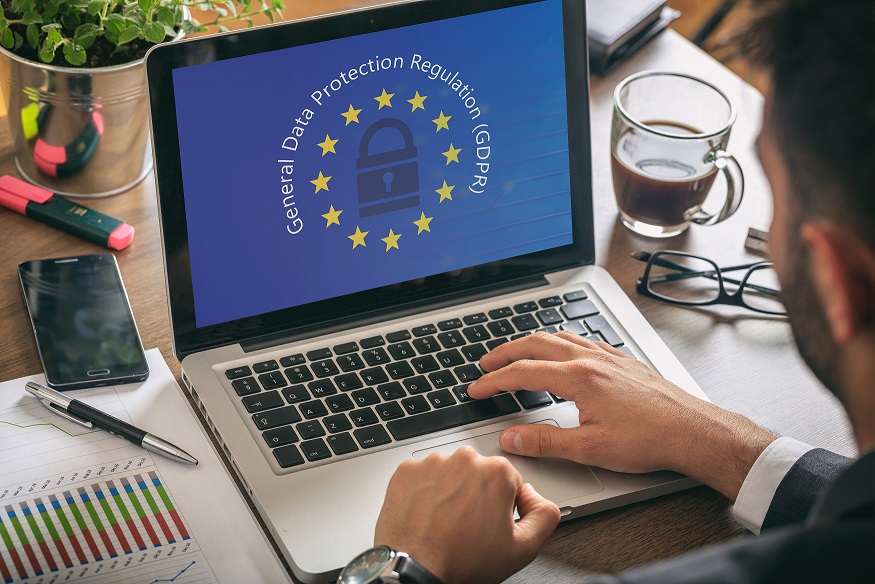
The collection of biometric information is a sensitive topic. Therefore, the existing regulation in Europe is very strict. B-FY guarantees its clients adequate compliance with current regulations.
The implementation of Multi Factor Authentication (MFA) is certainly an improvement over using just a username and password. However, this method has some disadvantages. Biometric authentication, based on patterns inherent to each person, offers greater guarantees in terms of security.

Biometric technology identity authentication is rapidly becoming more ubiquitous in our daily life for a variety of applications, from border clearance and immigration to almost every service across industries. However, there are still some misbeliefs about the use of biometric technology, its deployment and uses. Here are the most common myths about biometric authentication busted.

The rapid evolution of Internet and the incorporation of digital products and services to all aspects of daily life has brought about an equivalent increase in cyber threats, most of them being identity and credential-based. IAM can help, but organizations must get their implementations right. Here are some IAM trends we have identified for 2023.

Two-step authentication or two-factor verification (2FA) has become the identity verification system of choice for many organizations. However, it is a method that creates friction with the end-user, needs a learning curve and rises security concerns. Biometrics can help solve these issues.